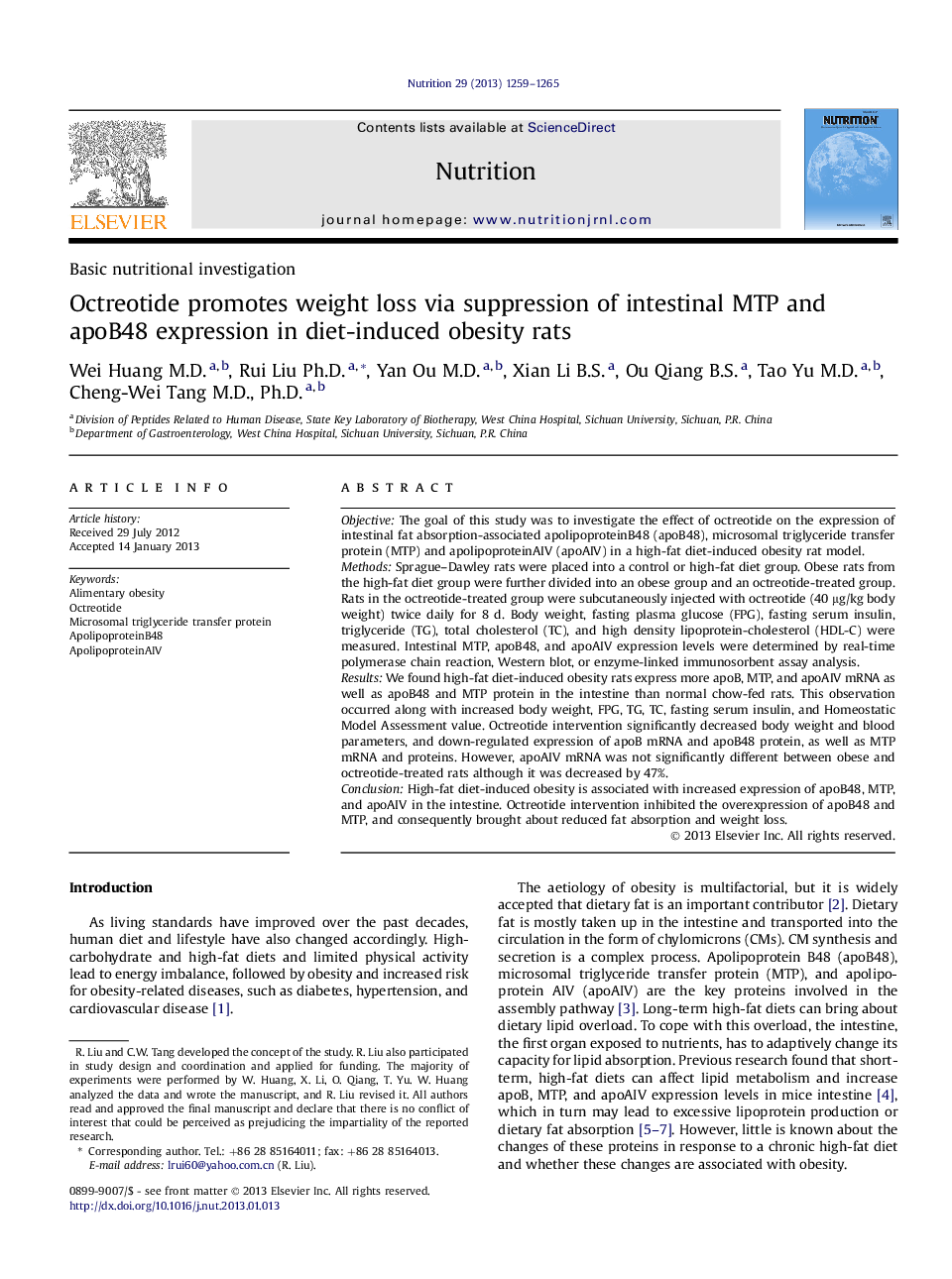| Article ID | Journal | Published Year | Pages | File Type |
|---|---|---|---|---|
| 3276421 | Nutrition | 2013 | 7 Pages |
ObjectiveThe goal of this study was to investigate the effect of octreotide on the expression of intestinal fat absorption-associated apolipoproteinB48 (apoB48), microsomal triglyceride transfer protein (MTP) and apolipoproteinAIV (apoAIV) in a high-fat diet-induced obesity rat model.MethodsSprague–Dawley rats were placed into a control or high-fat diet group. Obese rats from the high-fat diet group were further divided into an obese group and an octreotide-treated group. Rats in the octreotide-treated group were subcutaneously injected with octreotide (40 μg/kg body weight) twice daily for 8 d. Body weight, fasting plasma glucose (FPG), fasting serum insulin, triglyceride (TG), total cholesterol (TC), and high density lipoprotein-cholesterol (HDL-C) were measured. Intestinal MTP, apoB48, and apoAIV expression levels were determined by real-time polymerase chain reaction, Western blot, or enzyme-linked immunosorbent assay analysis.ResultsWe found high-fat diet-induced obesity rats express more apoB, MTP, and apoAIV mRNA as well as apoB48 and MTP protein in the intestine than normal chow-fed rats. This observation occurred along with increased body weight, FPG, TG, TC, fasting serum insulin, and Homeostatic Model Assessment value. Octreotide intervention significantly decreased body weight and blood parameters, and down-regulated expression of apoB mRNA and apoB48 protein, as well as MTP mRNA and proteins. However, apoAIV mRNA was not significantly different between obese and octreotide-treated rats although it was decreased by 47%.ConclusionHigh-fat diet-induced obesity is associated with increased expression of apoB48, MTP, and apoAIV in the intestine. Octreotide intervention inhibited the overexpression of apoB48 and MTP, and consequently brought about reduced fat absorption and weight loss.
